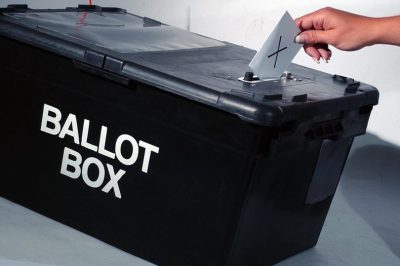Five Things We Have Learnt From Britain’s Election

Last week Britain voted in the most significant and surprising general election in modern history. What did we learn and where does this leave our work for global justice?
1. Mass politics is back
Armies of progressive Britons, many of them young people, came out to campaign in this election. Young people recognised that only a massive vote by them would prevent the Conservative landslide predicted in the polls, and they got involved in door knocking, delivering leaflets, standing on stalls, organising rallies and more. It wasn’t all for Labour – young people came out in huge numbers to support a progressive alliance as well, or other parties like the Greens and the SNP.
If, like us, you think only mass movements of people can change things, this bodes well. If these people stay engaged and involved in campaigning for change, anything is possible. We all have a role to play in helping them stay active. After all, it was the disaffection, frustration and anger of young people that gave us the sweeping political changes of the 1960s.
2. Neoliberalism is wounded. The fight for its successor will be fierce
The Labour manifesto firmly rejected ‘neoliberal’ economics of the free market, embedding instead social democratic principles of redistribution, industrial policy, high levels of investment, and an ethical foreign policy aimed at peace and cooperation. It was the most critical Labour position on the free market and big business since the early 1980s.
The Conservative manifesto also rejected aspects of neoliberalism, as May talked up industrial policy and the importance of the state, downplaying the traditional emphasis on free markets and declaring she wouldn’t be captured by those on the ‘ideological right’.
There was also much to object to in the Conservative manifesto on global justice issues, including a Trump-lite approach to migration, a push to redefine ‘refugee’ and ‘aid’, and an emphasis on trading with the world – which too often seems to mean human rights-abusing regimes. Some of this will sound good to certain big business interests – just as Trump’s programme has done. But this aside, it seems that here in one of the homes of neoliberalism, the ideological obsession with free markets is crumbling. We’ll have to see whether May’s loss of credibility and lack of a majority in the Commons changes that. But already there are reports of a rethink on austerity.
3. The political rulebook is no longer any use
Few political commentators or politicians expected this result. Indeed, the rules of politics of the last three decades seem to be useless in predicting what will happen next. It seems almost certain that there will be another election in 12 months under a new Conservative leader. But who knows?
This makes long-term planning more difficult. But it also shakes things up. Do we need to develop new sorts of organisations to deal with this new reality? To make new alliances? To look at how we campaign? It’s very possible that big organisations formed in a different period will find this new reality hard to cope with. Change won’t necessarily come from working with the same organisations that have played a big role up till now.
4. A softer Brexit is much more likely, with less arrogance and more cooperation
In terms of Brexit negotiations, nearly everyone thinks that May’s hard line Brexit strategy will need to be rethought. Those Conservatives who support a softer Brexit feel newly empowered. A closer relationship with Europe, perhaps remaining part of more institutions, maybe even the single market in a Norwegian style deal, is once more a possibility. The idea that ‘no deal with the EU is better than a bad deal’ has been dealt a serious blow.
This is good news for maintaining a decent regulatory framework, and maintaining cooperation and trade with Europe. Our central worry is that both Labour and the Conservatives oppose freedom of movement, and support ‘managed migration’. We’ll have to work hard to shift this.
The way that Brexit will come about will also change. Over the weekend Jeremy Corbyn said the Great Repeal Bill is ‘history’. This suggests that this mammoth piece of legislation, which risked giving huge new powers to government ministers, will be fiercely opposed by Labour and other parties. It raises the possibility that we really won’t see our rights diminished as part of this legislation. But we’ll still need to keep up the pressure.
5. There is a real choice – and everything to fight for
If neoliberalism is seriously weakened, the battle for what replaces it is in full flow. There are very big differences between the manifestos on the issues that concern us most. On trade, Labour, the SNP, Greens and Lib Dems all promised a more democratic means of negotiating trade deals. Labour launched a ‘just trade’ initiative, promising to review all investment deals with the aim of removing ‘corporate courts’. The Conservatives offered none of this, and are actually promoting trade deals with several countries with seriously worrying human rights abuses.
While Labour promised to premise aid on social justice, the Conservatives want to redefine the very term ‘aid’ so they can use it on all manner of projects not currently considered aid. While the Conservatives want to redefine ‘refugees’, Labour committed to international responsibilities towards refugees. While Conservative Ministers have cosied up to Gulf states, Labour promised an arms embargo on Saudi and an ethical foreign policy.
This is unusual for us – our policies have become mainstream. But they’re still contested. There is a huge ideological divide between the parties. The coming months will look less like normal governance and more like a protracted election between these competing visions for what sort of country the UK wants to become. It’s all to play for.
Featured image: Global Justice Now

